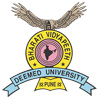





The Bachelors or B. Com in Capital Markets equips students with the wisdom and professional skills needed for serving in the stock market/financial services sector. The syllabus of BCM instills knowhow pertaining to various aspects of capital/securities markets. Once students complete this undergraduate course, they acquire the skills needed to take advantage of the opportunities provided by the capital markets as well as brave the challenges.
Pursuing this graduate course along with a relevant certificate program infuses confidence in the student and improves his interaction and presentation skills. The learner learns to work in conjunction with his peers as well as plan a project from scratch. Those pursuing this program will develop skills that will help them to contribute towards their employers’ growth and development.
Armed with a BCM certification from BSE, the graduates can land a job in SEBI (Securities and Exchange Board of India), FMC (Forward Market Commission), RBI, stock exchanges, brokerage firms, banks, and financial companies. The BCM course is a three-year program and divided into six semesters. The minimum eligibility criterion is a pass in the 10+2 exam conducted by a recognized state board or central board.
A master’s degree in global financial markets equips students with comprehensive knowledge and special skills, enabling them to steer their companies towards growth and development in the face of continuous change and upheaval. Students choosing this postgraduate program will gain a thorough understanding of the basic quantitative tools including probability and statistics and applied economic theory to securities statute and financial modeling.
The students also become aware about technical analysis tools and techniques and are able to hone their soft skills including communication and interpersonal skills. For completing the program, students attend practical sessions, and participate in case study discussions, class presentations, take up internships and simulation programs.
The MIFT program is a 2-year on-campus course imparting students with skills which lets them carry out financial transactions more effectively by harnessing technology. Candidates signing up for this postgraduate program come to have an in-depth knowledge about business information systems, analytic methods, finance, and accounting. Students gain a thorough understanding of management science, finance and accounting following the completion of the MIFT course.
BSE Institute extends full cooperation to the students for completing the program effectively by providing classroom instructions, internships, practical training, and industry interfaces. The students also pick up info on Big Data, Internet of Things, AI, bots, Machine Learning, and Blockchain technology that ultimately helps them to stay competitive in this digital age. Applicants having a BCA, B. Sc (IT/CS), B.E. degree or any other equivalent relevant qualification can opt for the postgraduate program in financial technology.
Candidates will also need to attain at least 50% marks in aggregate in the final exam of their graduation program. Additionally, the student will have to secure a prescribed score in state CET exam or in MAT/XAT/CAT/CMAT/GMAT/ATMA/GMAC/NMAT.
The ‘financial and capital markets’ sector in India which comprises of various segments has been and continues to go through a rapid evolutionary phase. The financial market segments consists of public and private banks, financial institutions like insurance firms, brokerage agencies, and mutual fund companies, cooperative banks, microfinance establishments, and NBFCs. By the end of 2020, India’s banking sector is projected to become the world’s fifth largest, as per a joint survey carried out by KPMG-CII.
The NSDC (National Skill Development Corporation) has published a report recently which mentions that the banking sector will need approximately 1.4 million individuals by 2022 to sustain the pace of growth. BIL has devised the curriculum of the PG (banking and finance) course, taking into account the aforementioned assertions. The syllabus of PGPBF is taught over a two-year period and consists of 10 subjects as well as a project.
Candidates, once they’re through with this program, will have a comprehensive grounding on banks and financial institutions’ ITIL structure and legal framework, bank credit, international trade and finance, foreign exchange markets, and banking operations. Any candidate applying for PGPBF should be a graduate of a UGC approved university, having achieved a minimum of 50% marks in aggregate. At the same, the applicant needs to have a valid score in XAT/MAT/CAT/NMAT/GMAC/GMAT/ATMA; state-level CET or BIL-ET.
